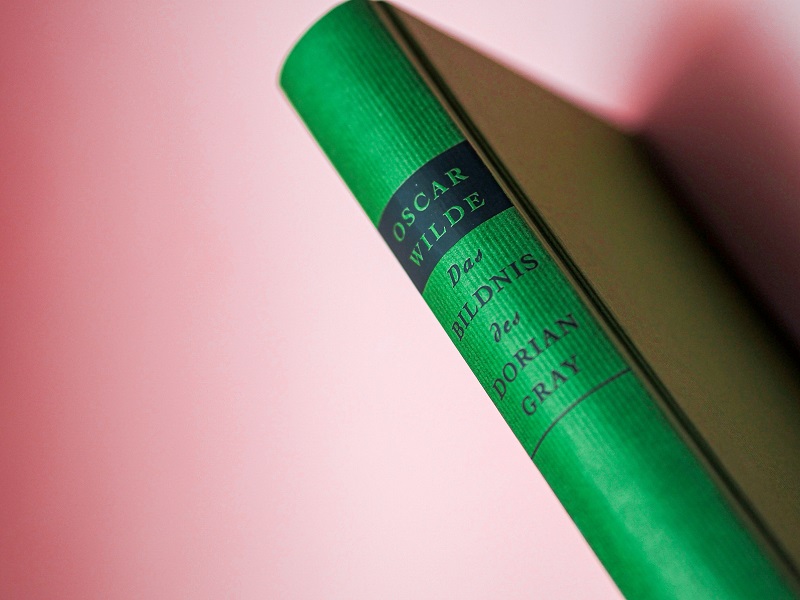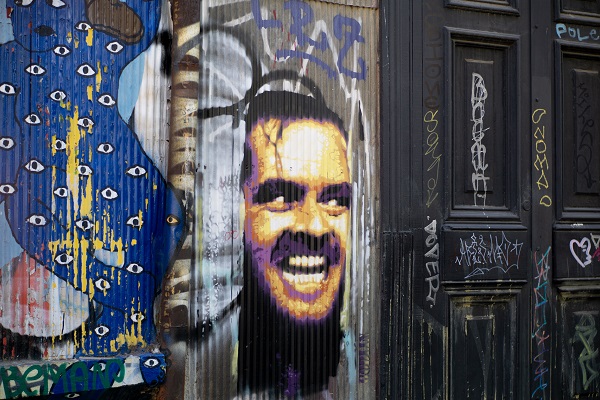Every character has thoughts, opinions and a past that has shaped them into who they are.
Character development is the process of creating this persona, then changing and adapting it in correlation to the events of a story.
As readers we get to know and understand characters, watching them deal with a multitude of situations. It wouldn’t be realistic if they stayed perfectly the same from beginning to end.
A character doesn’t necessarily need to change much; just in a natural way that relates to the story.
They can grow and better themselves, or see things in a new perspective. Or they may succumb to arrogance, hatred or madness.
I’ve put together a list of flawed, well-developed characters in famous literature, all of whom came out the other end of a story with new personas and new perspectives (or didn’t make it out the other end at all).
Read on for some good examples of good character development.
1. Mr Darcy – Pride and Prejudice
Let’s start with one of Jane Austen’s most famous leading men, Mr Darcy.
We see him primarily from the perspective of Elizabeth Bennet, who doesn’t exactly view him as her potential future husband after their first meeting.
‘…he was looked at with great admiration for about half the evening, till his manners gave a disgust which turned the tide of his popularity; for he was discovered to be proud, to be above his company, and above being pleased…’
Both the reader and Elizabeth get to know and understand that Mr Darcy is the way he is largely because of social awkwardness.
Mr Darcy also defends his character in a letter later on in the story, showing Elizabeth that he isn’t the man she once believed him to be.
Austen could have easily only shown Mr Darcy’s change through the point of view of Elizabeth and how her feelings for him grow, but instead, she shows an actual change and development in Mr Darcy’s persona through his proposals.
Below is an excerpt from Darcy’s first proposal, and from Elizabeth’s reaction to it:
‘In vain I have struggled. It will not do. My feeling will not be repressed. You must allow me to tell you how ardently I admire and love you…’
His sense of her inferiority – of its being a degradation – of the family obstacles which judgement has always opposed to inclination…
In this disastrous proposal, Mr Darcy demonstrates his ignorance of Elizabeth’s feelings for him, and insults her family to boot.
Even though he had no reason to suspect that Elizabeth cared for him, and despite the insulting nature of some of his words, he’s surprised by her rejection, never considering that this would be her response.

Later, once Elizabeth has read his letter and knows of his actions to protect her family’s reputation, we see a true change in Darcy during his second proposal:
‘You are too generous to trifle with me. If your feelings are still what they were last April, tell me so at once. My affections and wishes are unchanged, but one word from you will silence me on this subject for ever.’
Instead of simply reiterating his feelings for Elizabeth, he asks about her feelings. He doesn’t force anything on her, but lets her lead this interaction.
Mr Darcy listened to what Elizabeth said the first time, took it on, and learned from his mistakes.
It’s no wonder that after 200 years he’s still one of the most famous and favourite love interests in literature.
2. Dorian Gray – The Picture of Dorian Gray
The character development in The Picture of Dorian Gray is one of succumbing to madness and pride.
When the reader is first introduced to Dorian Gray, he is a young, naïve, beautiful man, who is very aware of his beauty. He’s a shallow person who’s never given much thought to anything meaningful in life.
He even weeps over his portrait when he realises he’ll never look like it again.
‘If it were only the other way! If it were I who was always young, and the picture that was to grow old!’
This is, of course, the moment Dorian promises his soul away. From here he delves more into a destructive lifestyle, breaking women’s hearts and ruining others’ reputations.
He’s free from repercussions as his portrait ages and bears the strain of his lifestyle.
Though Dorian remains young and beautiful, the idea of the portrait being seen, and his truth being outed, haunts him.
He becomes obsessed, hiding the portrait away – paranoid that people will judge him for it, but also because he doesn’t want to accept the facts.
It haunts him so much that, in a moment of madness, he kills the painter of the portrait, his dear friend Basil Hallward.
‘His beauty had been to him but a mask, his youth but a mockery. What was youth at best? A green, unripe time, a time of shallow moods and sickly thoughts.’
Dorian is more disgusted by his portrait than his vile acts, until, in a fit of despair, he destroys the painting – in turn accidentally killing himself, taking the face of the person he truly was.
Oscar Wilde not only portrays the toxicity of vanity, but also shows how a life without consequence is destructive.
Dorian Gray is plagued by the portrait, understanding that it reflects his true self, yet he never actually repents for his actions.
He (like another on this list – see number x below) feels no guilt for anything. He only wants his own pleasure; he even admits to not caring for anything less.
His pride, vanity, carelessness and conceitedness are a part of his character before the reader is introduced to him.
These characteristics lead him through a natural descent into self-destruction – all because he wanted to remain beautiful forever.

3. The Hobbits – The Lord of the Rings
Specifically, I’ll be referring to Merry and Pippin here.
These two don’t really have much to them at first. They’re the average hobbits: they love food and drink and are quite happy to stay in the Shire.
They are so similar that it’s hard to imagine one without the other. They’re not heroes; they just happen upon the situation while helping Frodo move house, and go along for the ride.
They do show signs of bravery and loyalty within The Fellowship of the Ring, as they pledge themselves to the fellowship and set off to Mordor to destroy the Ring. This plants the seeds for how they’ll grow.
‘If you have to go, then it will be a punishment for any of us to be left behind, even in Rivendell. We have come a long way with you and been through some stiff times. We want to go.’
Their bravery and loyalty are explored more after they are separated from one another, as Pippin pledges himself to Denethor and Merry fights in the final battle, protecting Eowyn.
Despite their small size, both take charge and have enough courage to do what’s right: Pippin by saving Faramir from his father, and Merry by fighting the Witch-king.
Their growth isn’t over, though.
In the epilogue, when they return to the Shire to discover that Saruman has taken over, they decide to fight back without hesitation, and lead a small army of hobbits to take back their home.
‘The sword glinted in the westering sun. Merry and Sam drew their swords also and rode up to support Pippin… Fearless Hobbits with bright swords and grim faces were a great surprise. And there was a note in the voices of these newcomers that they had not heard before. It chilled them with fear.’
If Merry or Pippin had stayed in or returned to the Shire in the first novel, they might have become one of the helpless enslaved hobbits.
But because they took the leap into the quest, experiencing war and befriending kings, they became brave and heroic, earning themselves the titles of Captains Meriadoc Brandybuck and Peregrin Took.
They may have longed for home, and both may still love a strong drink, but now they have a story to tell and a sword to display.
Despite having such an epic fantasy scope, the Lord of the Rings series still manages to explore immense natural growth in even its supporting characters.
4. Allie Montgomery-Taylor/Mother Eve – The Power
In Naomi Alderman’s The Power, the character Allie grows up abused physically and sexually by her foster father, while her foster mother ignores it.
This affects the way she sees the world for the rest of the novel, as she start to believe that men are cruel while women are victims.
‘She is afraid.
She is not safe.
She knows what she has to do.
The only way to be safe is to own the place.’
After she kills her foster father and escapes to a nunnery, she takes on the name ‘Eve’. Here begins the Christianity part of Allie’s journey.

She believes the voice in her head is God, guiding her way, setting her up to be a religious leader.
‘Someone asks Allie what happened to her, and she knows she can’t give her real name. She calls herself Eve and the voice says: Good choice, the first woman; excellent choice.’
She’s given the name of Mother Eve. Women respect and look up to her, believing that because she is able to fix women with broken steins (the part of the body that gives them their power), she is in some way is a messiah.
Through the years she works her way up in society, watching as jealous, cruel men torture and kill women, backing the worldview she had already developed at the start of the novel.
Her friend Roxy’s attack cements her mindset even further, putting into motion her future plan.
‘And then there will be five thousand years of rebuilding, five thousand years where the only thing that matters is: can you hurt more, can you do more damage, can you instil fear?’
‘Yeah?’
‘And then women will win.’
She uses her position to start a world war and end civilisation as we know it – one where men hold the majority of power.
Her aim is for women to take it back and start a whole new society where righteous women are the presiding power.
Allie may realise that women can be just as cruel as men, but that just furthers her decision. She’s not a power-hungry leader, nor is she vindictive or cruel.
She is just someone who has experienced too much pain to see the good things in her world. Her plan works, and not only are her actions understandable, in her eyes, they are justifiable.
5. Mortimer ‘Mo’ Folchart – Inkheart Trilogy
Mo is a selfless father, a lover of books and a bookbinder by trade, but he has a secret.
He can read characters out of books – a power that sounds pretty good until you think of all the villainous characters within those books.
In Inkheart, Mo is a normal man, not heroic in nature. To protect his daughter, Maggie, he runs away from danger rather than to it.
He and Maggie have a close bond and a shared joy in reading:
‘He often stayed up reading late into the night. Maggie had inherited her love of books from her father. When she took refuge from a bad dream with him, nothing could lull her to sleep better than Mo’s calm breathing beside her and the sound of the pages turning.’
During the second book, he enters the world of Inkheart and is forced to take the name of Bluejay. Bluejay is a hero of the people, written by Fenoglio, the original writer of Inkheart.
He doesn’t acknowledge that title or the persona that comes with it until the end of the second book.
The identity is fully realised in the third book when he accepts his fate and tries to help the people in the world against Adderhead.
‘…Mo felt it again, just as he had on Mount Adder when he had killed Basta – that coldness of the blood. Cold as the hoarfrost at his feet. The only fear he felt was fear of himself.’
As he becomes one with the world of Inkheart, his personality transforms so much from the beginning of the series. He no longer runs from danger but towards it.
His wife and loved ones question if he’ll ever be able to leave, or if he is even still the man they knew.
‘What about Maggie?’ Love was written all over his face. No, he hadn’t changed, whatever anyone said.’
They had nothing to worry about: he may have become the Bluejay, but at his core, Mo is still the caring book lover who will do anything to protect the ones he loves.
Even with all that change, he still has the same heart and priorities as before.
His change is forced upon him, but Funke makes it seem like a natural arc, which is why Mo is on this list.

6. Phillip ‘Pip’ Pirrip – Great Expectations
In Dickens’ famous novel, Pip is a young man who grows up poor, orphaned and looked after by his sister and her husband.
As a child, he meets Miss Havisham and Estella, who are upper-class and show Pip what he didn’t know he wanted.
As his relationship with them grows, so does his ideal of the life he wants: to be rich, have class, and not be ignorant.
‘… pondering, as I went along, on all I had seen, and deeply resolving that I was a common labouring-boy; that my hands were coarse; that my boots were thick; that I had fallen into a despicable habit of calling knaves Jacks; that I was much more ignorant than I had considered myself last night, and generally that I was in a low-lived bad way.’
Pip looks down on the life and the world he was brought up in, seeing himself as deserving of something more –an affluent, well-educated life.
Though his brother-in-law, Joe, is a hard-working, caring man, all Pip sees is his lack of class. Because of this, when Pip does become a gentleman, he ends up hurting those he holds dear.
‘I had neither the good sense nor the good feeling to know that this was all my fault, and that if I had been easier with Joe, Joe would have been easier with me. I felt impatient of him and out of temper with him; in which condition he heaped coals of fire on my head.’
Pip keeps this idea of how the world works and how the upper class should behave throughout the novel. It’s not until he finds out who his mysterious benefactor is that his view of the world is shattered.
He finally realises that one’s social position isn’t as important as other things in life, including his loved ones, who have always tried to help him.
‘No wisdom on earth could have given me the comfort that I should have derived from their simplicity and fidelity: but I could never, never, never, undo what I had done.’
He makes amends while he can and works to better himself, treating Joe and Biddy with the gratitude he had long withheld from them.
Through years of development, Pip goes from an ungrateful child who looked down at those who taught and protected him, to a man who accepts his faults and strives to become a better person.
7. Jack Torrance – The Shining
In Stephen King’s novel, Jack struggles with his anger, his alcoholism and the trauma of his past, but he desires and tries to be a better person. His goal is to be a better father, husband and writer.
‘The wanting, the needing to get drunk had never been so bad. His hand shook. He knocked things over. And he kept wanting to take it out on Wendy and Danny. His temper was like a vicious animal on a frayed leash. He had left the house in terror that he might strike them. Had ended up outside a bar, and the only thing that had kept him from going in was the knowledge that if he did, Wendy would leave him at last, and take Danny with her. He would be dead from the day they left.’

Jack is flawed and aggressive. His only redeeming feature is the fact that he really does love his family, and that he wholeheartedly tries not to hurt them and strives to be better.
This is a man who needs help, but instead of getting any, he takes the job at the Overlook Hotel and fools himself into believing that being there can change him. Of course, that isn’t what happens.
Over the course of his time there, he slowly descends into madness as the isolation weighs on his mental health, and he is entrapped by the evil within the hotel.
Jack loses everything good in him. Only his connection with Danny keeps him from hurting his son – though the same can’t be said for his wife.
‘”Gotcha!” he said, and began to grin. There was a stale odor of gin and olives about him that seemed to set off an old terror in her, a worse terror than any hotel could provide by itself. A distant part of her thought that the worst thing was that it had all come back to this, she and her drunken husband.’
Readers are left with the question of whether Jack would have succumbed to his urges and violence even without the influence of evil at the hotel.
The circumstances around the character feel very real, and his insanity isn’t out of the blue or developed too fast. It comes in slow, allowing readers to see the gradual difference in his behaviour and attitude.
8. Marianne – Normal People
Marianne starts Sally Rooney’s novel as an unhappy teen who has no self-confidence or pride in herself. Yet when it comes to her peers, she seems to have too much.
She doesn’t make friends easily and it seems overall that she doesn’t really feel the need to. She looks down on those around her for not being as intelligent or put together as she is.
‘She exercises an open content for people in school. She has no friends and spends her lunchtimes alone reading her novels. A lot of people really hate her.’
We see Marianne gain outright confidence as she enters college, though she still has none when it comes to relationships.
She listens too much to any negative comments that her partners have, and allows them to do whatever they want to her, whether she likes it or not.
From the way her brother and past lovers have treated her, Marianne seems to believe that she doesn’t deserve love.
She doesn’t believe that anyone, even the novel’s main love interest, Connell, ever loved or cared for her.
‘He tells her bad things about herself. It’s hard to know whether Marianne likes to hear those things: she desires to hear them, but she’s conscious by now of being able to desire in some sense what she does not want.’
Eventually, though, Marianne accepts that she deserves better, and trusts in her relationship with Connell.
Even when he moves away, she is confident that they’ll still end up together, no matter what happens.
‘You should go, she says. I’ll always be here. You know that.’
Marianne becomes more selfless and confident, ending the novel with friends and people around her who actually care for and treat her well.
Though Connell and their relationship help Marianne get to this point, it is ultimately the positive change within herself that leads to her development, with her bettering herself and no longer allowing anyone to mistreat her with the excuse of love.

9. Libby Day – Dark Places
Libby Day has to be my favourite of Gillian Flynn’s protagonists, as she’s the one I understand the most. Even though we are nothing alike, I can relate to her.
She’s haunted by her past, unable to move on from her family’s murder, and yet never really allows herself to acknowledge what happened.
She’s unstable and unable to make friends, and distances herself from anyone who gets too close, including the aunt who raised her.
‘I have a meanness inside me, real as an organ. Slit me at my belly and it might slide out, meaty and dark, drop on the floor so you could stomp on it. It’s Day blood. Something’s wrong with it. I was never a good girl, and I got worse after the murders.’
Libby doesn’t see herself in a good light – she’s just the one who survived a night of bloodshed and then pointed her finger at her brother.
This never really changes, though she does realise the mistake she made and decides to help prove her brother’s innocence.
After finding out the truth about her family’s murder, she doesn’t change into a new, upbeat person, but does go through a state of acceptance and allows herself to move on.
She takes one last look at her old home and notices how things have changed, and the novel ends with hope for her future.
‘I studied it all for a few minutes, keeping my brain steady, staying away from Darkplace. No screams, no shotguns, no wild bluejay cries. Just listen to the quiet.’
She also starts rebuilding her relationships. She makes peace with her aunt, gets close to Lyle, the person who helped her with the case, and even grows closer to her brother, whom she hadn’t seen since he went to prison.
We can see the difference in her first and last time visiting her brother.
‘I put one tip of my finger near the bottom of the glass window…’
‘Ben pressed his hand against the glass, and my brother and I matched palms.’
As Libby touches him through the glass, she’s allowing her brother back into her life and heart, and both forgive one another.
She may still have some problems in her life, but she’s no longer alone or in torment, and the story ends with hope.
***
Mr Darcy, Merry and Pippin, and Mo all change for the better, becoming heroes or worthy partners.
Dorian Gray, Allie/Eve and Jack all change for the worse: they are dragged down by whatever negative force is around them.
Pip, Marianne, and Libby Day change more of their perspective rather than their outright personality, all gaining some hope for their future.
Though these stories and characters are all different, all explore character growth and/or development in intriguing and realistic ways.
Character development happens over time. It shouldn’t be surprising or sudden; it’s teased out, built upon and explored by the author until its natural conclusion.
What’s your favourite example of strong character development in a novel?